
Explore South Africa In These Books
Our March Literary Travel guide takes us to South Africa, a country whose history is ridden by so much political strife. These collections are not for the faint of heart, each of these writers wears the weight of their beloved country on their sleeves with these powerful narratives that demand we open ourselves to uncomfortable realities that not only make great markers of history and storytelling but also demand the best of ourselves.
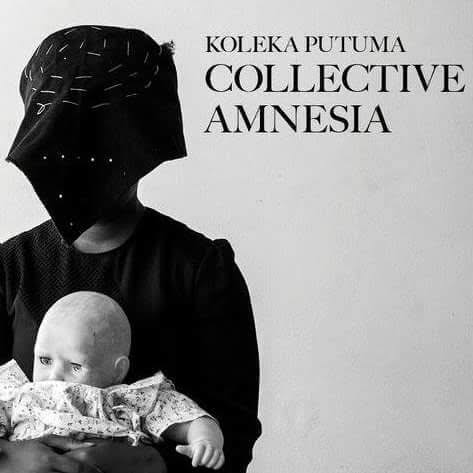
Collective Amnesia — Koleka Putuma
In Putuma’s debut poetry collection, memory is a tool that indulges the reader and bids them to question what has been learned and what must be unlearned. Her words hold back nothing and demand justice for the structural violence against black bodies in South Africa and beyond, insist on visibility for queer peoples, and spare no prisoners in its command.
Each poem is written with such powerful delivery and underscored with even more powerful depth in what it means to be black, queer, and a woman. Her exploration of identity, history, resilience, and healing demands a constant confrontation and examination of our truths.
Collective Amnesia must be read with an open mind and honesty.
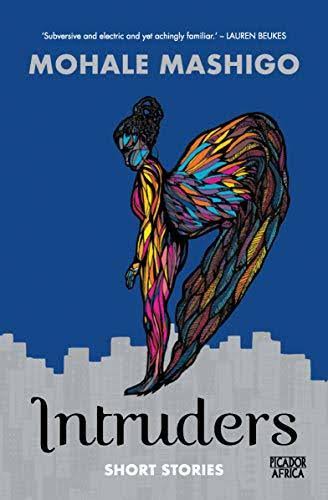
Intruders —Mohale Mashigo
South African urban folklore and legends come to life in this exciting collection of Speculative fiction, however, Mohale doesn’t stray far from the everyday ills and realities of South Africa, interweaving both worlds and in it finding the parallels of social injustices from gender-based violence to the ripple effects of apartheid.
These twelve stories are multilayered and out of this world (literally,) taking the reader on a journey to the forsaken and unusual, amidst social and political commentary, you will encounter unforgettable characters and even more memory-gripping stories.
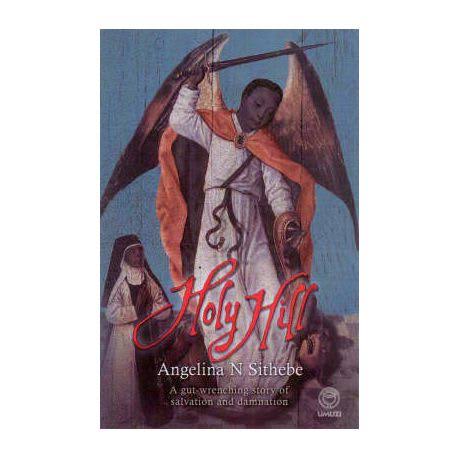
Holy Hill —Angelina Sithebe
Nana is only but a suitable host for the ancient spirits that possess her body. As a child, they manifest in mischief until her parents send her off to a Catholic convent where she is tutored and disciplined in extremes. The convent leaves Nana broken mentally, spiritually, and physically, yet her spirits continue to guide and protect her as she navigates life outside the convent, living a contrary life.
Soon she meets Claude, an illegal immigrant who has had a rough past but is now born-again and committed to his religion, despite their faith differences, the two are attracted to each other. Claude is in the position to become her saviour, or she, his damnation.
Through their now intertwined lives, Holy Hill offers a powerful social critique of power and religion.
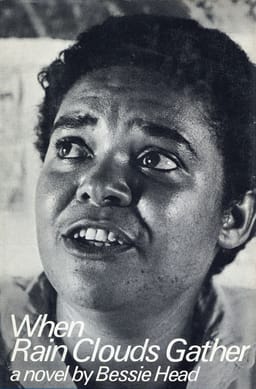
When the Rain Clouds Gather — Bessie Head
A South African literary listicle will not be complete without a Bessie Head recommendation. When the Rain Clouds Gather is her first novel, published in 1968.
When Makhaya flees apartheid South Africa as a political refugee, he has no plans for the life that will greet him at this border village in Botswana, he is helpless and overwhelmed by the complexities of his situation, leaving a home he could not change for the uncertainty of a new country.
In the village, he encounters an English Agricultural expert who sees boundless potential for prosperity in newly Independent Botswana. The two work together encouraging the villagers to accept more progressive ways of living and revolutionize their farming systems for better living. Their efforts are met with several pushbacks, a harsh climate, and opposition from the village chiefs who are threatened by their efforts.
The story addresses the complexities of age-long customs vs the need for progressive thought, a common theme for many African novels from its time. Bessie Head herself, who lived in exile in Botswana drew parallels from her experience that further authenticate the core of this story. It is not a heavy read, and although its premise is ridden with antagonists, injustices, and misfortune, its themes of hope, love, and redemption offer a band-aid.
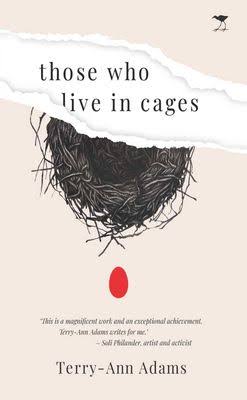
Those Who Live in Cages — Terry-Ann Adams
Those Who Live in Cages offers commentary on the lived experiences of coloured South Africans living in Eldorado Park, a coloured settlement in Johannesburg. Through the lives of Five Women, its centrepiece is the struggle with Identity. The author’s choice to write the story from different perspectives draws the readers into the individual voices and struggles of these women seamlessly and intimately as they strive to just survive another day.
The story's authenticity lies in its ability to show these women in their full glory, as both victims and gatekeepers of the cages they are subjected to, and also in the author's ability to affirm yet critique her community.
In a book woven deeply around identity, the use of language as part of the author's representation of her community is the novel’s crowning effort.
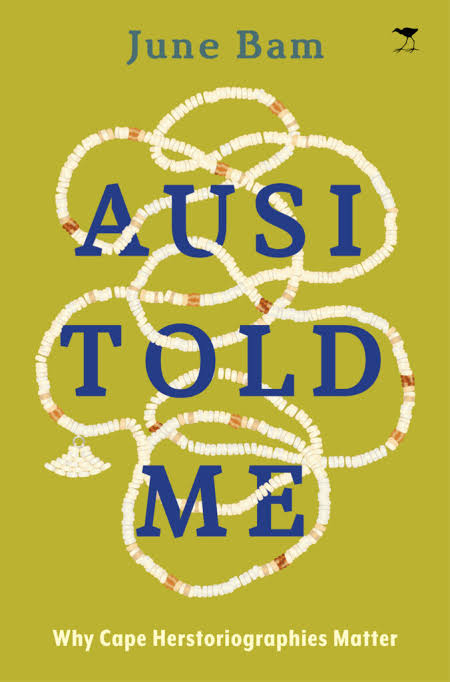
Ausi Told me: Why Cape Herstoriographies Matter — June Bam
In this meticulously researched book, intergenerational knowledge transmission is key, the author recognizes the stories and rituals passed down through generations as crucial sources for parts of history that have been neglected and wrongfully documented for too long.
The book delves into the long-forgotten stories and histories of the Khoe-sān people of southern Africa, especially those who lived in the Cape Flats for centuries before thier forced removal by settler colonialism. The matriarchs of these communities, known as the Ausidi are the selfless “heroes” of these stories, it is through their Herstories that the author critiques the widespread notions of the extinction discourse around Khoe-sān peoples.
Khoe-sān’s people are believed to have either been wiped out entirely or are currently living diluted, too civilised lives by virtue of forced assimilation to live as “coloureds” within Southern Africa.
Without disregard for the traumatic legacy of colonialism, or the devastating impact of forceful assimilation, genocide, culturicide, epistemicide, and linguicide that these people have faced over centuries, June Bam mounts emphasis on the existence and survival of the Khoe-sān people and vehemently critiques the ways scholars continue to erase their existence.
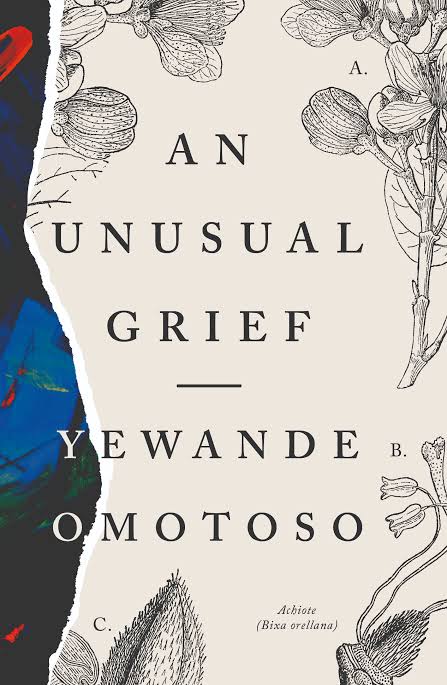
An Unusual Grief — Yewande Omotoso
After her daughter's unexpected death, Mojisola is thrust into learning, in death the daughter she did not know in life. She moves into her daughter's apartment, she goes through her things, she meets with the people who shaped her life, from lovers to friends, she is desperate to find the daughter she had long lost even before her death, and in turn, she discovers bits and pieces of herself that had been contoured by many circumstances of her own life.
In her self-discovery, she is also forced to confront the dysfunctions of her life that have inevitably led her here, her marriage, her husband, her own relationship with her mother, and everything in between.
An Unusual Grief confronts its theme of Motherhood in many deeply moving ways. Mojisola’s character moves beyond the two-dimensional walls of literature and holds a mirror to the many ways the African society has failed in its expectations of performance over honesty. Yewande Omotosho has written a moving tale with many revolutionary lessons on familial relationships, motherhood, and the intricacies of coming into one's self.
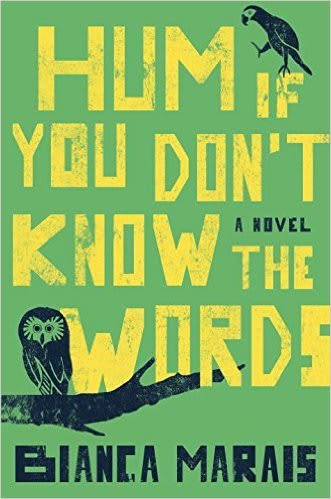
Hum If You Don’t Know the Words — Bianca Marais
The Soweto uprising upends the lives of Robin, a ten-year-old white girl living in Johannesburg with her parents, and Beauty Mbali, a Xhosa woman living in a rural village struggling to raise her children after the death of her husband when both Robin’s parents are killed and Beauty’s daughter goes missing.
In a twisted work of fate, the crisis of their lives brings both of them together when Robin is sent to live with her Aunt who is barely around, and Beauty while searching for her daughter is hired to take care of Robin. In each other they find the band-aid for their grief and through their lives, we are immersed yet again into the inexhaustive realities of Apartheid South Africa.
The story is told in alternative perspectives and richly expressed narratives.